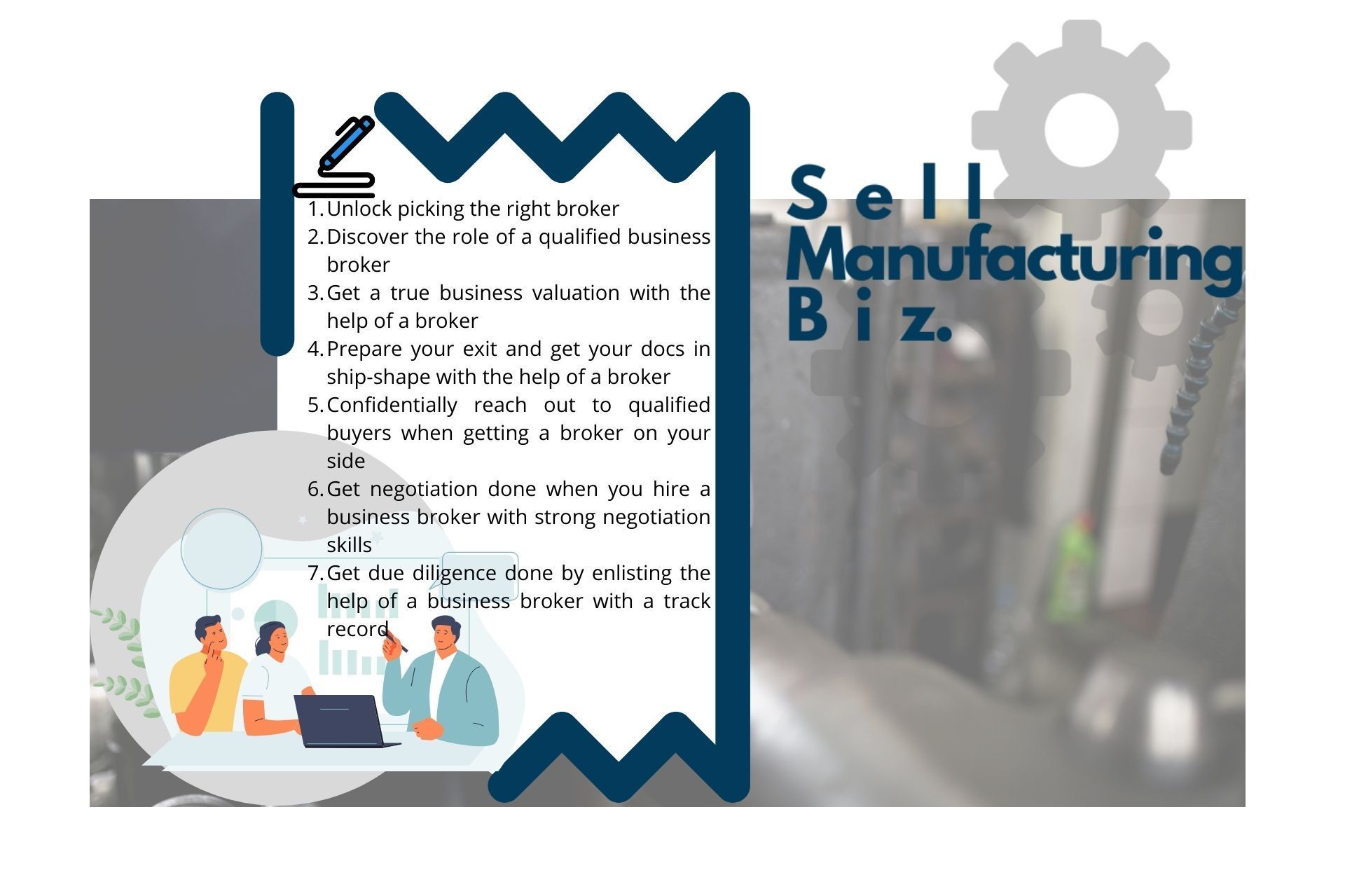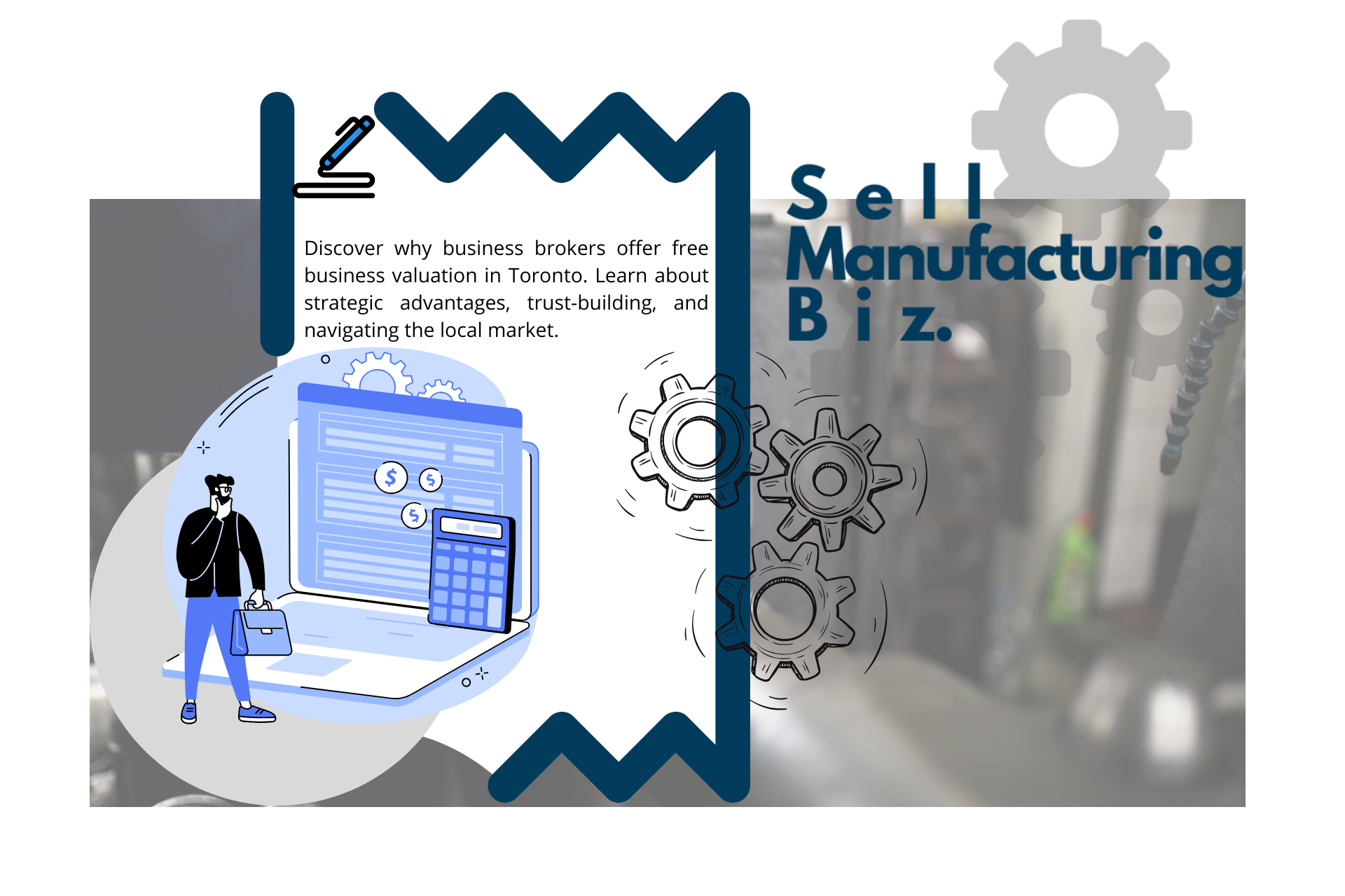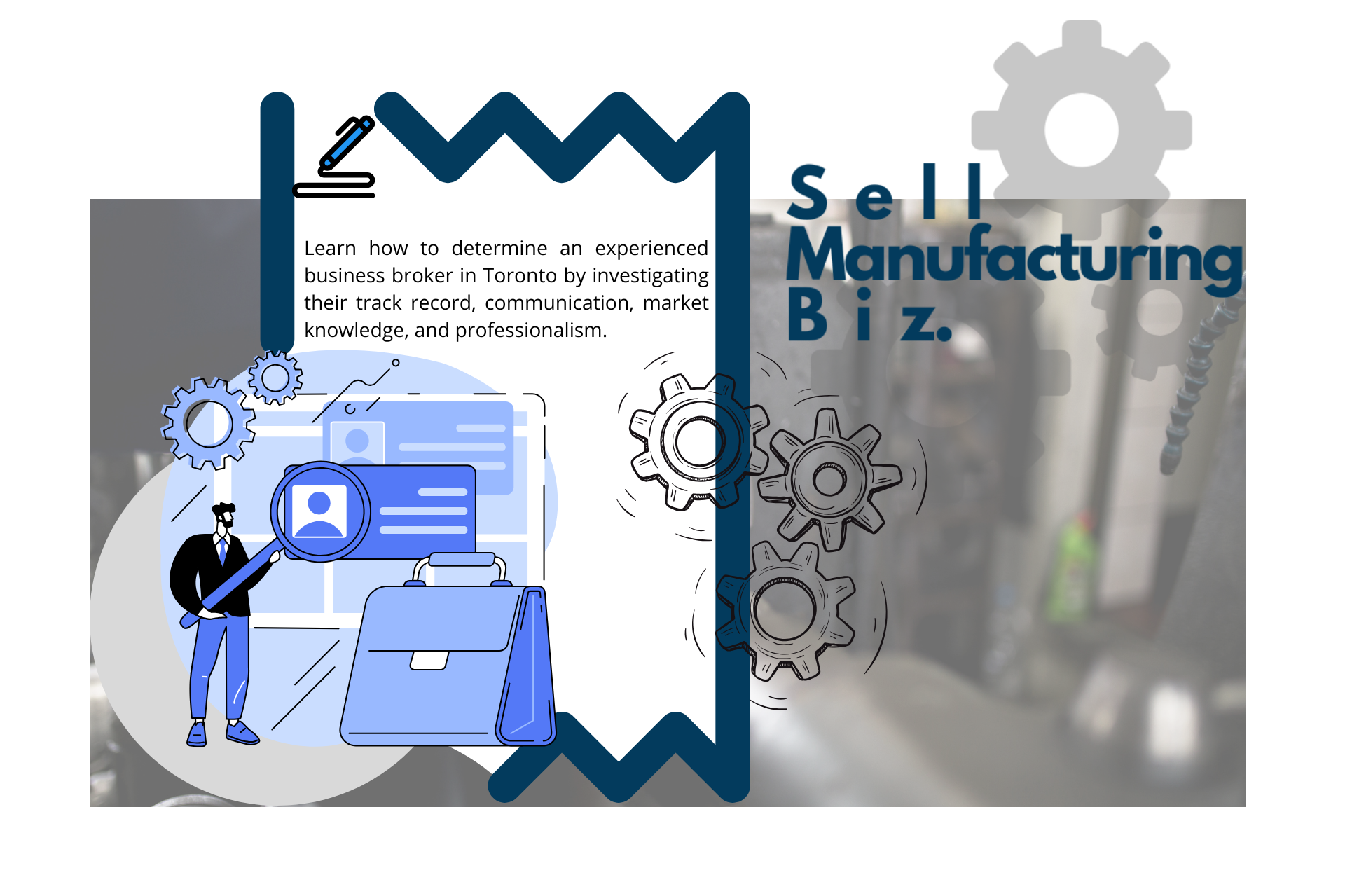The Ultimate Playbook To Help Sell A Small Or Medium Size Manufacturing Business In Canada
Selling a manufacturing business in Canada is a complex and challenging task. You need to have a clear and realistic exit strategy, as well as the guidance and support of a qualified and reputable manufacturing business broker or M&A Advisor who can help you navigate the sell-side process. Otherwise, you risk making a mistake that could cost you time, money and opportunities.
GET THE GUIDE ->
Get The eBook
Sell A Manufacturing Biz Guide
Skyrocket Your Chance Of Success!
Guide to help exit a manufacturing company
Discover how to sell your manufacturing business with ease and confidence. This guide will show you the steps, tips and tricks to get the best deal possible. Don't miss this opportunity to learn from the experts and achieve your goals
Sell My Small & Medium Size Manufacturing Company Playbook
Table of Contents
Sell My Manufacturing Business
You have built a successful manufacturing business in Ontario, British Columbia, Edmonton, or Alberta and you deserve to enjoy the fruits of your labor. Maybe you want to retire and spend more time with your family, or maybe you have a new venture in mind. Whatever your reason, selling your company can be a great way to achieve your goals.
But selling a manufacturing business is not something you do overnight. You need to plan ahead and prepare your manufacturer for sale. You need to make sure your:
- financial records are up to date,
- your operations are efficient,
- and your customers are satisfied.
You also need to find the right buyer who will appreciate the value of your business and offer you a fair price.
That's why you need an exit strategy for your manufacturing company in Canada. An exit strategy will guide you through:
- the process of selling your fabrication business
- and help you avoid common pitfalls.
- It will also help you maximize your profit and minimize your taxes.
With an exit strategy, you can sell your manufacturing business in Ontario or other provinces such as: British Columbia, Alberta, Edmonton, and more; when the market is favorable and when you are ready.
Start With An Exit Strategy
There are many steps to sell your manufacturing business, and you will need an exit strategy if you want things to go smoothly and ensure you get the most out of your sale.
If you are considering to exit your manufacturing business in Canada, you need to have a clear plan and strategy to make the process smooth and profitable.
There are different options for selling your business, such as:
- transferring it to a family member
- or a key employee,
- or finding a buyer from within or outside your industry.
Each option has its pros and cons, and you need to weigh them carefully based on your situation and goals. You may also benefit from hiring a business broker in Canada who specializes in manufacturing businesses in Canada.
They can help you:
- prepare your business for sale,
- find the right buyer,
- and negotiate the best deal.

Top Reasons To Sell Your Manufacturing Business In Canada
There are many reasons you may want to sell your manufacturing company - here are four reasons to start thinking about an
exit plan.
1. You Have Achieved Your Financial and Personal Goals
You may have started your business with a vision and a passion, but you may also have reached a point where you are satisfied with what you have accomplished. You may have enough wealth to secure your future and live comfortably. You may also want to explore other opportunities or enjoy your leisure time with your loved ones.
2. You Feel Tired and Overworked
Running a business is not easy. It requires a lot of dedication, hard work, and sacrifice. You may have been willing to do all that when you were younger and more enthusiastic, but you may feel that you need a change of pace now. You may be experiencing burnout and fatigue from the constant pressure and responsibility of being a business owner. You may want to hand over the reins to someone else and take care of yourself.
3. Your Business Is Ready for the Next Level
Sometimes, your business may grow faster than you expected. It may reach a stage where it can attract public investors and go public. This can be a great opportunity for your business to expand and reach new heights, but it also comes with many challenges and regulations. You may not be interested or prepared to deal with them. In that case, an IPO can be a good exit strategy that will allow you to cash out and reduce your involvement.
4. Your Market Is Changing
Even if your business is doing well now, you may face some uncertainty in the future. The market and industry you operate in may be shifting due to various factors, such as consumer preferences, technology, competition, or regulation. These changes may affect your profitability and viability in the long run. You may want to exit before things get worse or more complicated.
Business Valuation In Canada
What is it? Why do I need one if I am considering selling my manufacturing business? What is my business worth?
How to Prepare Your Manufacturer Before Putting it Up For Sale in Canada
While planning the sale of your manufacturing business, you need to know how to make it stand out from the competition.
There are many factors that can affect the value and attractiveness of your business, such as its
- profitability,
- reputation,
- customer base,
- and growth potential.
Below, we walk you through 12 steps that will help you prepare your manufacturing business for sale and increase your chances of finding a suitable buyer in Canadian Provinces such as: Ontario, British Columbia, Edmonton, or Alberta.
Preparing to Sell a Manufacturing Business
1. Act as a Buyer
To sell your small or medium manufacturing business in Canada, you have to put yourself in the shoes of a buyer. You love your manufacturer, but what would a stranger think of it? Pretend you're the one doing the research and checking everything. What would catch your eye? What would make you wary? By adopting this perspective, you can fix any issues that might scare away buyers and avoid any delays.
2. Get Your Documents in Ship-Shape
Before you sell your manufacturer in located in Ontario, British Columbia, Alberta, or Edmonton; you need to get your documents ready.
This can take some time (up to 6 months), so don't wait until the last minute. Some of the documents you need are:
- Your tax and financial records for the last three years or more
- A breakdown of your income by market segment
- A summary of your top ten customers and how much they buy from you
- A report of your overdue and upcoming payments
- A list of all your equipment with details like year, make, model and serial number
- A list of your inventory
- Information about your employees (but don't share this with anyone until later)
This is not everything you need. You'll have to prepare more stuff before you list your business for sale. And when you find buyers, they might ask for more documents too.
3. Empower Your Team to Work Independently
A lot of owners who run factories find it hard to let others do the jobs and end up doing most of the stuff by themselves. Sure, you know your company best, but you also need to make sure your staff can handle most of your business's tasks when you're away.
If you're the only one who knows how to do a big part of the business, you might scare away potential buyers. Most buyers who want to merge or acquire businesses want something that's ready to go, not something where they have to spend hours teaching employees or doing most of the work themselves.
Plus, by training your employees, you're making sure that the business can keep going as you move out.
4.
Don't Let Your Whole Senior Team Retire at Once
A potential buyer might be discouraged if most of your staff are close to retirement with you, even though these loyal key employees have contributed to your business's success.
You don't want to let go of your valued employees, but bringing in new hires can reassure potential buyers that the company is ready to move forward. You might even want to think about an internship program to help train new employees.
5. Document Your Processes
As you run a manufacturing business, you probably have a lot of knowledge and experience that only you know.
You are the one who makes sure everything works smoothly and efficiently. But what if you want to sell your manufacturing business someday? How will a new owner know how to run it without you?
That's why you need to document your processes in an operations manual. This is a guide that explains step by step how to do each task in your business. You can work with your employees to create this manual by asking them to write down what they do and how they do it.
This way, a new owner will have a clear picture of how your business operates and what they need to do to keep it going. It will also make your manufacturer more attractive and valuable to potential buyers.
And as an added benefit, if you or any of your employees are away for some reason, your business won't suffer because someone else can follow the manual and take over their role.
6. Get Everything Organized
A clean and organized facility is essential for your business.
You should not neglect any aspect of it, from the equipment to the stock to the documents. Sort out what you need and what you don't, and dispose of the latter. Make sure everything is tidy and easy to find.
Documents should be filed properly, and the production area should be spotless. Of course, some messiness may be unavoidable depending on your industry, but do your best (or hire a professional) to minimize it.
Your business is like your house. You would not sell a house that was dirty and chaotic. A cluttered business will deter potential buyers and make them doubt the quality of your work, while a neat and orderly one will impress them and show them that you run a smooth operation.
7. Stay in Compliance With the Environmental Law
You don't want to mess with the law when it comes to your manufacturing business in Ontario.
Buyers will ditch you faster than you can say "sorry" if they find out you're breaking any rules. So do yourself a favor and check out all the legal stuff that applies to your industry and your process.
Make sure you're doing everything by the book and that your staff knows what's up too.
Sometimes you might have to change something in your process to make it legal. That can be a pain in the wallet, but trust me, it's worth it. You don't want to risk getting fined or shut down for being noncompliant.
8. Make Sure That All Books Are Updated
Before you sell your manufacturing business, you need to make sure your records are honest and up to date.
A buyer will check everything carefully, and they won't trust you if they find any discrepancies. One thing you should do is compare your records of profits and losses with your tax return and see if they match.
If they don't, don't try to fix it by yourself. You need a professional accountant to help you sort it out, and you also need a good reason for why the numbers were different in the first place.
9. Update All Financial Obligations
No buyer likes to inherit a lot of financial problems when they take over a business. You should make sure that all your money matters are up to date and settled. Pay off any debts you have and collect any payments you are owed.
Don't leave any taxes unpaid or any liens on your business. Your finances should be clean and clear when you hand over your business.
10. Envolve Your CPA
Part of getting your manufacturing business positioned for sale, you need to get your financial documents in order and have them checked by your CPA. Your CPA can make sure everything is accurate and up to date, and help you fix any mistakes.
A CPA can also help you prepare records that show how profitable your business can be. This is different from the records you use for tax purposes, which usually try to minimize your taxable income. You should let your CPA handle this process instead of doing it yourself.
Another thing your CPA can do is help you understand the tax implications of selling your manufacturing company. Depending on how you structure the deal, you may have to pay a lot of taxes on the sale proceeds.
Your CPA can help you find the best way to maximize your net profit after taxes. This is especially important if you are planning to retire, as you want to make sure you have enough money to live comfortably.
11. What Is Your Goal After the Sale
You have put a lot of time and effort into getting your Canadian manufacturing business ready for sale, but have you thought about what comes next? After the deal is done, how will you spend your days? Will you still be involved in the business in some way?
Selling a business that you have created and grown is not easy. It can be hard to let go and move on. That's why you need to plan ahead and figure out what you want to do with your life after the sale.
Otherwise, you might end up feeling lost and bored.
12. Enlist The Help of a Manufacturing Business Broker in Canada
Selling your manufacturing business and planning your exit strategy is not an easy task. It requires a lot of time and attention to detail. You may find it hard to balance your current responsibilities with preparing your business for sale. You may also make mistakes that could affect your business performance or your sale price.
That's why you should consider hiring a manufacturing business broker.
Sell My Manufacturing Biz and their Advisors have the expertise and experience to help you get your Canadian manufacturing business ready for sale. They can assist you with every step of the process, from valuing your business to marketing it to potential buyers. They can also help you avoid any pitfalls and increase the appeal of your business to buyers.
By working with a professional, you will have peace of mind that your exit strategy is well-planned and executed. You can focus on running your manufacturing business and know that when the time comes, you will be able to sell it for the best possible price.
Selling a Manufacturing Business - Canadian Focused Sectors
There are many attractive manufacturing business sectors that we see a high demand of investors and strategic buyers looking to acquire in Ontario, British Columbia, Alberta, or Edmonton. Most popular manufacturers that are hot for mergers and acquisitions are:
- Selling a Food Manufacturing Business
- Selling a Furniture Manufacturing Business
- Selling a Medical Devices Manufacturing Business
- Selling a Machinery Manufacturing Business
- Selling an Industrial Equipment Manufacturing Business
- Selling a Paper Products Manufacturing Business
- Selling a Machine Shop Manufacturing Business
- Selling a Drone and Aviation equipment Manufacturing Business
Learn how to plan an exit for your Canadian manufacturing company

Business Valuation Canada - What is It Worth?
A common concern you may have before you decide to sell your Canadian business is how much it is actually worth. You can't just use a simple formula to calculate the true value of your Ontario manufacturing business based on your costs and profits. The process is more complex than that.
There are 15 key factors that influence how much your manufacturer is worth. We will explain them in detail below.
1. Profits Matter, But So Does How You Make Them
One of the first things that buyers look at when they evaluate a manufacturing Canadian business is its profitability. They want to see a consistent and growing stream of income that shows the potential for future growth. But not all profits are created equal.
Buyers will also look at how you make your money, and how efficient and sustainable your business model is. They will analyze your sales, cost of goods sold, labor costs, material costs, overheads, and net earnings. They will compare your margins with industry benchmarks and competitors.
A higher margin means a more profitable and well-managed business. It also means you have more room to invest in growth or weather a downturn. If your gross margin is below 35%, you may want to look for ways to reduce your expenses or increase your prices. Most buyers will shy away from businesses with low margins.
2. Assets and Liabilities Are Not Enough to Measure Value
Some manufacturing owners may think that the value of a business is simply the difference between its assets and liabilities.
This is a very simplistic and inaccurate way of valuing a business, as it does not account for the earning potential and intangible assets of the business. A better way to value a business based on revenue is to use an EBITDA or an SDE analysis.
EBITDA stands for Earnings Before Interest, Taxes, Depreciation and Amortization, and SDE stands for Seller's Discretionary Earnings. These metrics show how much cash flow the business generates before accounting for non-operating expenses and owner's compensation.
They give a more realistic picture of the performance and profitability of the business, and they are widely used by buyers and valuation experts.
3. The Owner's Role and Transition Plan Can Make or Break a Deal
Another important factor that affects the value of a manufacturer is the owner's role and transition plan in Ontario, British Columbia, Edmonton, or Alberta and more provinces we cover. If the business depends heavily on the owner's skills, knowledge, relationships, or reputation, that can be a red flag for buyers.
They may worry that the business will suffer or lose customers once the owner leaves. They may also demand a longer transition period or a lower price to compensate for the risk.
On the other hand, if the owner has built a:
- strong team,
- delegated responsibilities,
- documented processes,
- and established a loyal customer base, that can boost the value of the business.
It shows that the manufacturing company can run smoothly without the owner's involvement, and that it has a solid foundation for growth. It also makes the transition easier and faster for both parties.
4. Diversify Your Revenue Sources
One of the things that buyers look for in a manufacturing business is a stable and diversified revenue stream. If you rely too much on a few customers or a narrow market segment, your business may be seen as risky and less valuable.
A buyer may be concerned about losing a major customer or facing increased competition in your niche. To avoid this, you should try to expand your customer base and market reach before selling your business. You can do this by offering new products or services, entering new markets or regions, or partnering with other businesses.
5. Build Long-Term Relationships With Customers
Another factor that can boost the value of your manufacturing business is having loyal and repeat customers. Customers who place regular and consistent orders throughout the year are more valuable than customers who come and go.
A buyer will be more confident in your business's future performance if you have a solid customer base that trusts your quality and service. To build long-term relationships with customers, you should focus on delivering excellent products, providing outstanding customer service, and creating value-added solutions for their needs.
6. Differentiate Yourself From Competitors
One of the ways to increase the value of your manufacturing business is to offer something unique or superior in your industry. You may have a product that is innovative, high-quality, or exclusive, or a process that is more efficient, cost-effective, or environmentally friendly than others.
These things can give you a competitive edge and make your business more attractive to buyers. You should highlight your unique selling proposition and showcase your achievements and awards in your industry.
7. Protect Your Intellectual Property
If you have any patented products, technologies, or designs, you should make sure they are properly protected and registered. Intellectual property can be a valuable asset for your manufacturing business, as it can give you a monopoly over your market and prevent others from copying or infringing on your rights. You should also keep track of any licenses or royalties that you receive from your intellectual property and include them in your valuation.
8. Stay Ahead of Technological Changes
Manufacturing is an industry that is constantly evolving and changing due to new technologies and innovations. If you want to increase the value of your manufacturing business, you should keep up with the latest trends and developments in your field and adapt accordingly. You should invest in research and development, upgrade your equipment and software, and adopt new methods and techniques that can improve your productivity, quality, and efficiency. You should also monitor the market demand and customer preferences for your products and adjust your offerings accordingly.
9. Maintain Your Equipment and Facilities
One of the things that can lower the value of your manufacturing business is having outdated or poorly maintained equipment and facilities. If you have not invested in capital improvements for a long time, a buyer may have to spend a lot of money to upgrade or replace them when they take over. This can reduce the amount they are willing to pay for your business or even discourage them from buying it at all. To avoid this, you should keep your equipment and facilities in good condition and make necessary repairs or replacements when needed. You should also keep records of all your maintenance activities and expenses.
10. How Much Competition Is There?
One of the factors that can affect the value of your manufacturing business is the level of competition in your industry. If you are operating in a niche market where there is high demand and low supply, you have a competitive advantage. On the other hand, if you are facing many competitors who offer similar products or services, you may have to lower your prices or invest more in marketing and innovation. Therefore, you should always keep an eye on the market trends and customer preferences and try to differentiate yourself from your rivals.
11. The Age of Your Employees
Another factor that can influence the value of your manufacturing company in Canada is the age of your workforce. If you have a team of young and skilled workers who are loyal and motivated, you have a valuable asset. They can help you maintain and grow your business for a long time and attract potential buyers who want to take over a well-trained staff.
However, if most of your employees are close to retirement, you may face some challenges. You may have to deal with high turnover rates, skill gaps, and succession issues. Therefore, you should always invest in training and development programs and create a succession plan for your key positions.
12. Procedures and Certifications
Another factor that can boost the value of your manufacturing company is the quality and consistency of your processes. If you have documented all the steps involved in your production cycle, from sourcing materials to delivering finished goods, you have a clear advantage.
A written process means that you can easily replicate and scale your operations and ensure quality standards. It also means that you can smoothly transition your business to a new owner without disrupting the workflow or losing customers. Therefore, you should always update and refine your processes and keep them organized and accessible.
Any certifications that you can obtain, such as ISO for manufacturing or ISO 9001, can also enhance the value of your manufacturing business. These certifications demonstrate that you have met the industry benchmarks and best practices for quality management, customer satisfaction, and continuous improvement. They also make your business more attractive to buyers who want to avoid any legal or regulatory issues. Therefore, you should always seek to acquire and maintain relevant certifications for your industry and products.
13. What Your Machines and Equipment Are Worth
Another factor that can determine the value of your manufacturer is the worth of your machines and equipment. If you have modern and efficient machines that can produce high-quality products at a low cost, you have a strong asset.
A buyer will likely need to finance the purchase of your business, and a lender will require some collateral. They will often use your equipment as collateral, and if it's worth enough, they will approve the loan. However, if your equipment is outdated or damaged, you may have to lower your asking price or find other sources of financing. Therefore, you should always keep your machines and equipment in good condition and upgrade them when necessary.
It is also important to note that you cannot add the cost of your used equipment to the asking price of your business. You have to sell everything as a package deal at one price. Therefore, you should not overestimate the value of your equipment or expect to get back what you paid for it.
14. How Your Business's Earnings Affect the Buyer's Financing Options
One of the factors that banks consider when lending money to buyers who want to purchase a business is the DSCR (Debt Service Cover Ratio). This ratio measures how much the business earns in relation to the amount of the loan. It indicates whether the business can generate enough income to pay back the loan. When you value your manufacturing business, you should aim for a favorable DSCR, otherwise, you may have trouble finding a buyer who can secure financing.
15. The Importance of Your Business's Location
Another factor that influences the value of your business is its location. If your business is situated in an attractive area that offers benefits to both employees and customers, such as a prosperous community with quality education, healthcare, and other amenities, then you can expect to get a higher price for your business.
Get Your Copy Of The Ultimate Business Valuation Guide
Learn more about Business Valuation and why it matters the most while planning your exit strategy.
Unlock Discovering The Role of a Manufacturing Business Broker in Selling Your Manufacturing Business in Canada
As a manufacturer, if you are considering selling your manufacturing business in Ontario, British Columbia, Alberta, or Edmonton; you might be wondering how a manufacturing business broker can help you. Well, they do more than just list your business and hope for the best. They provide a range of services that can make your business selling process seamless and minimize mistakes. Here are some of the things you can expect from a certified M&A broker:
How to Find and Screen Buyers for Your Manufacturing Business
Selling your manufacturing business in Canada is a big decision that requires careful planning and preparation. You want to find the right buyer who can take your business to the next level and pay you a fair price. But how do you attract and evaluate potential buyers?
There are many sources of buyers, such as:
- employees,
- investors,
- private equity groups,
- and even competitors.
However, not all buyers are equal. Some may have ulterior motives or lack the financial resources to close the deal. You need to protect your confidential information and avoid wasting time with unqualified buyers.
That's why you need a professional broker who specializes in manufacturing businesses.
An M&A Advisor can help you:
- prepare your business for sale,
- market it to qualified buyers,
- and negotiate the best terms for you.
A manufacturing business broker will also handle all the details and challenges that come with selling a manufacturing business in Canada, such as:
- due diligence,
- valuation,
- financing,
- and closing.
Here Are Some of the Key Steps That a Manufacturing Business Broker Should Handle For You:
A certified broker will follow a checklist of steps to make sure everything goes smoothly and you get the best deal possible. Here is a walk of some of the important steps or stages in preparing and selling a manufacturing company in Ontario.
1) Exit Plan: This is the roadmap for selling your manufacturing business
A certified M&A professional can help you determine the:
- best timing,
- valuation,
- and strategy for your exit.
- They can also prepare your business for sale by optimizing its financial and operational performance.
2) Deal Origination: This is the stage where you attract and engage potential buyers
Brokers can market your business to a wide network of qualified buyers, using various channels and techniques.
They can also:
- screen and follow up with interested parties,
- and negotiate the best terms for you.
3) Deal Execution: This is the final phase where you close the deal
A manufacturing business broker can manage the:
- due diligence,
- legal, and financial aspects of the transaction.
- They can also resolve any issues or challenges that may arise along the way.
- Buyer Due Diligence: After you find a potential buyer for your manufacturing company, they will want to do their own research and verify the information you provided.
- A business broker will assist you in this phase by facilitating the communication and negotiation between you and the buyer.
- They will also help you prepare a Letter Of Intent, which is a document that outlines the main terms of the deal.
- They will also help you gather all the documents and records that the buyer requests, such as financial statements, tax returns, contracts, leases, etc.
- The broker will also advise you on how to avoid any red flags that might scare off the buyer, such as being unclear about your reasons for selling, being uncooperative or secretive, or introducing the buyer to your suppliers, employees and landlords too early or too late.
- Definitive Purchase Agreement: Once you and the buyer agree on the terms of the deal, you will need to sign a Definitive Purchase Agreement, which is a legal contract that specifies all the details of the sale.
- A business broker will help you review and negotiate this agreement, making sure that it protects your interests and reflects the agreed-upon terms. A Definitive Purchase Agreement can also shield the buyer from certain liabilities that might arise from your business operations.
- A manufacturing business broker will also help you navigate the legal aspects of selling a manufacturing business in Canada, such as complying with provincial and federal regulations, obtaining permits and licenses, and transferring ownership of assets and liabilities.
- Closing: The final step of the sale is the closing, which is when the ownership of the business is officially transferred to the buyer.
- A business broker will help you prepare for this stage by ensuring that everything is in order, such as:
- securing financing,
- completing escrow procedures,
- and signing all the necessary paperwork.
2. A business broker will also help you with the transition of the business to the new owner, making sure that everything goes smoothly and that both parties are satisfied with the outcome.
As you can see, selling a manufacturing business in Canada is not an easy task. It requires a lot of:
- planning,
- preparation,
- negotiation,
- and expertise.
That's why hiring a business broker can make a huge difference in your success.
Ready to sell your manufacturing business in Canada, let us help you achieve your goals?
If you're looking for a reliable and professional partner to help you buy or sell a manufacturing business in Canada, you've come to the right place.
Sell My Manufacturing Biz is more than just a brokerage firm—we're experts in valuing and selling small to medium-sized manufacturing businesses. Our Certified M&A Advisor,
Khaled Baranbo, has years of experience and knowledge in this field. He can answer all your questions, guide you through the process, and connect you with the best opportunities for your goals. And don't worry about confidentiality—we respect your privacy and handle every transaction with integrity and discretion.

Mistakes to Avoid - Selling on Your Own
If you're thinking of selling your manufacturing business by yourself, you might want to think again. There are some common mistakes that can make your business look less attractive to potential buyers. And that means you could end up getting less money than your business deserves. Here are some of the things that can lower the value of your business in the eyes of a buyer.
One of the biggest red flags for a buyer is if your business relies too much on one or a few customers. You need to have a diverse customer base that generates steady revenue. Another problem is if your cash flow is low. If you're barely breaking even or spending more than you earn, your business won't look very profitable. You also need to have some recurring revenue that ensures future income for your business.
Another factor that can affect the value of your business is how you run it. Your business needs to have a clear vision and a plan for growth. A buyer wants to see that your business has potential and room for improvement. You also need to stand out from your competitors and offer something unique and valuable to your customers. You don't want to be just another generic manufacturer that competes on price alone.
How to Avoid These Mistakes
If your goal is to get the best return on your investment in your business sale, you should consider hiring a broker who specializes in manufacturing businesses. A broker can help you avoid these mistakes and more by preparing you:
- business for sale,
- marketing it to qualified buyers,
- and negotiating the best deal for you.
A broker can make all the difference when it comes to selling your manufacturing business in Canada. Don't risk losing money and time by trying to do it yourself. Contact a manufacturing business broker today and get started on your exit strategy.
Final Thoughts on Selling a Manufacturing Business in Canada
If you want to sell your business someday, you need to plan ahead and have an exit strategy ready. An exit strategy will help you prepare your business for sale and avoid any mistakes that could ruin the deal.
Selling a manufacturing business in Ontario, Alberta, Edmonton, or British Columbia is not easy. There are many details to take care of and many challenges to overcome. You don't want to leave anything to chance or risk losing money or time.
That's why you should consider hiring a certified manufacturing business broker in Canada to guide you through the process of selling your manufacturer. An advisor is an expert who knows how to value your business, market it to potential buyers, negotiate the best terms, and close the sale successfully.
At Sell My Manufacturing Biz, our advisors will save you stress and hassle and ensure that you get the most out of your business sale. You can check out our sold manufacturing deals. We're happy to share with you some case studies.
Do you want to learn more about how Sell My Manufacturing Biz can help you sell your manufacturing business in Canada?
Contact us today for a free consultation. We will answer all your questions and give you honest advice without any pressure
If you're looking for a reliable and professional partner to help you buy or sell a manufacturing business in Canada, you've come to the right place.
Sell My Manufacturing Biz is more than just a brokerage firm—we're experts in valuing and selling small to medium-sized manufacturing businesses. Our Certified M&A Advisor,
Khaled Baranbo, has years of experience and knowledge in this field. He can answer all your questions, guide you through the process, and connect you with the best opportunities for your goals. And don't worry about confidentiality—we respect your privacy and handle every transaction with integrity and discretion.
FAQ's
Sell a Manufacturing Company in Canada - FAQs
ButtonSell a Manufacturing Business in Canada: FAQs
Keep a copy of this amazing step-by-step-guide to help "Sell a Manufacturing Company in Canada" - it's yours!
Sell My Manufacturing Biz provide help to manufacturing business owners in Canada to maximize their return on investment when time comes to sell their business. We zero target off-market, accretive, private equity and strategic byers in small to medium size manufacturing companies to maximize incremental growth value.
